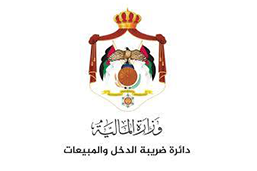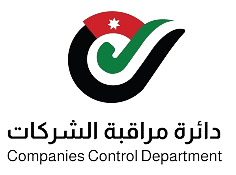Useful Links
hcc – Your Partner in Financial & Strategic Success .
Hisabat – Useful Links

Income and Sales Tax Department
The Income Tax Department began as a department affiliated with the Ministry of Finance when the first Income Tax Law was issued in 1933. Then it became an independent department in 1951, where it carried out its work under Law No. (50) of 1950. Since then, the tax legislation has undergone numerous amendments with the aim of developing it and keeping pace with economic and social developments to fill the gaps arising from implementation.

National E-invoicing System
On December 8, 2022, the Income and Sales Tax Department launched the Jordanian National Electronic Invoicing System, marking the beginning of the phase of companies and establishments joining the National Invoicing Program network. The announcement was made during a press conference held by the Minister of Finance, Dr. Mohammad Al-Ississ, the Minister of Digital Economy and Entrepreneurship, Ahmed Al-Hanandeh, and the Director General of the Income and Sales Tax Department, Dr. Hussam Abu Ali.

The Companies Control Department is a financially and administratively independent national institution, and is affiliated with the Minister of Industry and Trade in accordance with the provisions of the amended Companies Law No. (40) of 2002. Its own administrative organization system No. (44) of 2003 was issued to enhance the efficiency of the elements applying it, and to create visions and programs to ensure independence and transparency. The work of the department is governed by Companies Law No. (22) of 1997 and its amendments.

The Social Security Law was issued in Jordan in 1978 (Temporary Law No. 30 of 1978), then Law No. (19) of 2001 was issued, followed by the amended Temporary Law No. (26) of 2009, Temporary Law No. 7 of 2010, and finally Law No. (1) of 2014 and its amendments, which became effective on 3/1/2014.

It is the municipality of the Jordanian capital, Amman, and it is the body responsible for providing public services to the citizens of the city. The Amman Municipality is a civil institution that has a legal personality with financial and administrative independence. Its boundaries, functions and powers are established, abolished and its region’s borders, functions and powers are determined in accordance with the provisions of the Greater Amman Municipality Law (18) of 2021. Its borders are (800) km2 and its population exceeds (4) million people. It is managed by the Municipality Council, which consists of a number of members determined by the Council of Ministers, provided that two-thirds of its members are directly elected and the remaining third is appointed by a decision of the Council of Ministers based on the President’s recommendation.

The establishment of the Emirate of Transjordan was accompanied by the establishment of the first customs administration in 1922, which was called the Directorate of Excise and General Statistics. It was administratively linked to the Presidency of the Council of Advisors (currently the Prime Minister’s Office). Its objective was to conduct statistics, inspections, and collect revenues from goods imported into the country. At that time, it was collected as a census fee, and later became an inspection fee, and is currently called customs duties.

Ministry of Industry, Trade and Supply
The first independent Ministry of Industry and Trade was established during the reign of His Majesty the late King Talal bin Abdullah, may God have mercy on him, on January 30, 1952

General Organization for Food and Drug
The General Organization for Food and Drug was established by Temporary Law No. (31) of 2003, and the permanent law for the organization No. (41) of 2008 was approved. It has a legal personality with financial and administrative independence, and in this capacity it has the right to carry out all legal actions necessary to achieve its objectives, including owning movable and immovable property, concluding contracts, accepting gifts, grants and wills, and it has the right to delegate the civil public prosecutor to act on its behalf in the legal and judicial procedures related to it.

Ministry of Investment
The Ministry of Investment was established in 2021 and is the legal successor to the Saudi Arabian General Investment Authority. Pursuant to Article 7 of Investment Environment Law No. 21 of 2022, the Ministry is designated the primary authority for investment in the Kingdom.

Amman Chamber of Commerce
The Amman Chamber of Commerce is a private, non-profit organization that aims to serve the interests of its members, merchants and companies in the capital, Amman. The Chamber registers commercial institutions and companies, provides them with various services, and represents them before government agencies. It also contributes to developing the business environment and improving relevant legislation and laws.

Standards and Metrology Institution
The Jordan Standards and Metrology Organization was established as a public institution with financial and administrative independence and operates under Law No. (22) of 2000 and its amendments, after it was one of the directorates of the Ministry of Industry and Trade from 1972 until 1994.

Jordanian Electronic Filing System – Trademarks
In Jordan, trademarks are legally protected under the Trademark Law. This law allows trademark owners to register their trademarks to protect their rights and prevent others from using them without permission. A trademark is any sign, symbol, or design used to distinguish the products or services of an individual or company from those of others.

International Arbitration Board
The Authority is the professional reference for experts and specialists in the field of international law, arbitration, political relations and diplomacy, by creating a digital community for thinking, learning and exchanging ideas on important legal and diplomatic issues, with the aim of enabling leaders, legal professionals and politicians to excel, innovate and compete.

Ministry of Justice
The Jordanian Ministry of Justice is the executive arm of the judiciary. Established in 1921, it works to achieve the state’s mission of establishing justice and equality and protecting rights and freedoms. The ministry aims to consolidate the rule of law, promote the principles of equal opportunity and transparency, protect rights and freedoms, and enhance the institutional capacity of the judiciary.

Jordanian Free and Development Zones
The free zones experience in Jordan began in 1973, when a small free zone was established in the port of Aqaba to develop international trade and serve transit trade. The Free Zones Corporation was established as an independent government institution in 1976.

Aqaba Special Economic Zone Authority
The Aqaba Special Economic Zone is a global hub, where three continents meet and a world-class destination for investors and tourists alike. Located on the Gulf of Aqaba, which flows into the Red Sea, the zone extends to the borders of Palestine and Saudi Arabia and touches Egyptian territorial waters. It constitutes a comprehensive strategic outlet for regional and international markets, maximizing business opportunities across all sectors and providing a sophisticated standard of living.

Ministry of Labor
The Ministry of Social Affairs was established in 1951 AD, which included a special department for workers to supervise the union organization. In 1960 AD, the first labor department was established in implementation of the provisions of Labor Law No. (21) of 1960 AD, where the name of labor was added to the Ministry of Social Affairs. In appreciation by the government of the great role played by the labor force in the process of economic and social development, the Ministry of Labor was established as an independent ministry in 1976 AD, pursuant to its organizational system No. (40) of 1976 .

Jordan Securities Commission
When discussing the emergence of the Jordan Securities Commission (JSC) as one of Jordan’s most venerable institutions, a key pillar of its economy and an achievement to be added to the Jordanian state’s other achievements, it is imperative to shed light on the stages through which the financial market progressed prior to the establishment of the JSC as an independent legal entity. Each stage represents a qualitative leap and a cornerstone supporting the emergence and development of the Jordanian capital market, keeping pace with the development of the Jordanian state over the hundred years since its establishment.

Jordanian Audit Bureau
With the issuance of the Jordanian Constitution on January 8, 1952, the third phase of establishing the Audit Bureau in its constitutional capacity entered into force. Article (119) of the Constitution stipulates that “an Audit Bureau shall be established by law to monitor the state’s revenues, expenditures, and methods of disbursement.” In light of this constitutional article, Audit Bureau Law No. (28) of 1952 was issued in the Official Gazette issue dated April 16, 1952. This law came into effect one month after its publication in the Official Gazette. Five amendments to this law have been issued over the course of more than sixty years. These amendments came to keep pace with the expansion of government activity and the economic and social development witnessed by Jordan during this period, and the subsequent development in the types and methods of oversight, its objectives, scope, requirements for its practice, and the technologies used therein.

Jordanian Association of Certified Public Accountants
The Jordanian Association of Certified Public Accountants was established in 1987 and enjoys a legal personality with financial and administrative independence. It has the right to own movable and immovable property and to carry out all legal actions necessary to achieve its objectives. It has a president who represents it before official bodies. The association has a general assembly consisting of practicing certified public accountants, whose number is estimated at approximately (688) members. The general assembly discusses the annual report of the council, approves the association’s final statements and estimated budget, selects the certified public accountant to audit its accounts, elects the president and members of the board of directors, and reviews legislation related to the profession.

Association of Income and Sales Tax Experts
This association aims, among other things, to cooperate with the relevant authorities and urge them to issue laws, legislation, regulations and instructions to organize and develop the profession of tax expertise, and to establish rules that establish a custom that governs the performance and professional conduct of those working in this sector, and in a way that preserves the rights of all parties, whether they are the treasury, the citizen or the tax expert, all within the framework of the laws and regulations in force. On 01/09/2010, 45 members mentioned in Chapter Two, Article Four, met and agreed to establish an association called the Association of Income and Sales Tax Experts.
